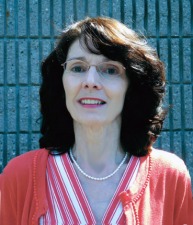Being connected makes such a difference in life
PRIME – May 2014
By Debbie Gardner
debbieg@thereminder.com
There's no question that a digital divide exists in America. I see it with my friends who don't have teenagers at home, as I do. They aren't as aware of the latest social media sites, websites, YouTube videos, or apps for their smartphones.
Some don't even have smartphones, let alone social media profiles and such.
How much more removed are most of our elders, many of whom retired before computers even became commonplace in the workplace.
I can remember an acquaintance who retired shortly after I got married in the mid 1980s mentioning that still-working friends were extolling the virtues of learning the computer.
At the time, my acquaintance, like so many individuals in that generation, wanted none of that.
How many of those individuals, now finding themselves in good health into their late 80s, 90s and even 100s, wish they had rethought that decision?
How many wish they could see videos of their grandchildren, or talk over the computer with family members that now live in far-flung corners of our country, and world?
The pace of life has changed dramatically and for the non-tech savvy, it can be very isolating.
My head is still above water digitally, thanks to my role as an older parent (who knew you could personal message on Twitter?) But I feel for those left in the dust.
That was why I found the work being done by Sarah Hoit and her company, ConnectedLiving, so innovative.
By finding a way to help elders get to the onramp of the digital highway without fear, she's revolutionizing the experience of aging in America.
As we chatted about the company she and her partner Chris McWade who sadly succumbed to cancer in 2013, founded, she told me about some of the effects she's seen firsthand when elders get the opportunity to use technology to reconnect with the world.
"In one of the communities [where we placed Connected Living] 35 residents were really isolated, " Hoit said. "They weren't dressing or bathing or interacting. They were definitely depressed."
Hoit said these individuals were given tablets to take to their rooms, and a ConnectedLiving ambassador worked with each one individually to help them learn how to navigate the company's secure interface so they could communicate with family and friends who had signed up to be part of the closed-loop service.
"It changed their whole lives," Hoit said. "They were washing, dressing and logging in 10 times a day."
As Elena Leon, director of community relations for The Atrium in Agawam, noted, the effect of being able to email, or in many cases, "see" your loved one through a video chat service such as Skype, has a two-way effect.
"They can see that mom or dad is up and dressed and bright-eyed," Leon said of the family members who check in on Atrium residents electronically.
It's a kind of peace of mind for both, and a way for families to be part of each other's lives, even if they are many miles apart, Leon noted.
As Hoit pointed out, ConnectedLiving, with its many services, including a learning center called Connected Living University, offers a way to give many lonely, isolated elders back a purpose in life.
Though Hoit's company primarily provides Connected Living services in senior living communities at this point, she said her company has plans to do so much more.
For example, she said ConnectedLiving is in discussion with app makers, including Apple, so the service can go mobile for families.
As Hoit said, wherever someone is aging, they need to stay connected to the people they love.
Today's digital society both connects, and isolates us. Even those of us who know how to navigate its waters can sometimes feel adrift.
How wonderful that there is now a lifeline for those who find those digital waters too frightening to venture in on their own. Thanks to Sarah Hoit, aging is less lonely for so many.

